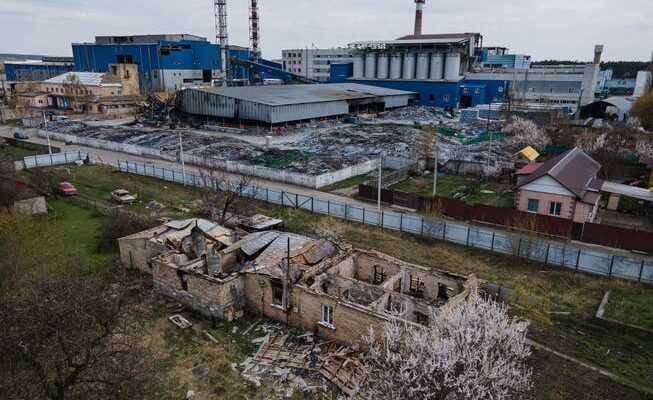Production at the Vetropack plant in Hostomel is no longer possible. How long should you continue to pay the employees there?
The Vetropack plant in Hostomel, Ukraine, was badly damaged during the war.
The Ukraine war affected the glass packaging manufacturer Vetropack more directly than almost any other Swiss company. His plant in Hostomel near Kyiv was so badly damaged in the first days of the war that there is still a long way to go before production can be resumed – even though the situation around Kyiv has calmed down.
The group is now taking action: Two-thirds of the approximately 600 Ukrainian employees will be laid off. One cannot keep these jobs in the long term if one has no income in the Ukraine, explained the head of the group, Johann Reiter.
One can hardly blame Vetropack for not taking care of the Ukrainian employees. In the first days of the war, the company paid attention to the safety of its employees. He helped many to flee the country and got some new jobs at Vetropack plants in the rest of Europe. The company continued to pay wages even though it was no longer possible to work. And even now there should be a social plan to cushion hardship.
But the decision to cut jobs now also raises the thorny question of how far a quasi-humanitarian commitment by companies can go. Continuing to pay wages in Ukraine for another year, for example, would cost Vetropack several million francs. Wouldn’t that be acceptable?
The group has decided otherwise. This shows that sooner or later solidarity will reach its limits.
And you should probably put up with that. You cannot ask companies to show solidarity beyond a certain point. In the longer term, humanitarian aid is ultimately the task of politics and civil society.
